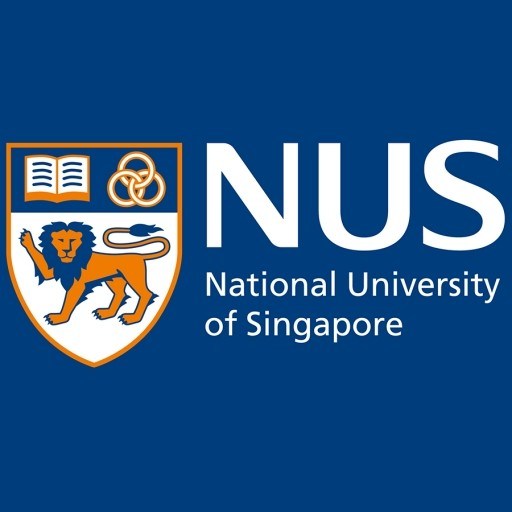Photos of university / #ntu_sg
Politics and economics are intertwined. In today’s globalised world, understanding one area and not the other makes comprehension incomplete. Analysing and drafting effective policy require knowledge of the interaction between economic and political goals.
The MSc (International Political Economy) programme provides the link between politics and economics by examining relevant theoretical and practical concepts from both disciplines. It seeks to equip students with:
- Analytical skills necessary to understand complex interactions between international politics and economics
- Substantive knowledge spanning countries and regions throughout the world
- An understanding of the historical evolution of the global political economy in order to appreciate and address challenges in the contemporary period
Core Courses
- IP6000 Theories and Issues in International Political Economy
- IP6001 Economics for International Political Economy
- IP6015 Quantitative Methods in the Study of International Politics
Primary Courses
- IP6008 A Globalizing China in the World Economy
- IP6009 Monitoring Forecasting and Managing Country Risk and Economic Crisis
- IP6016 Energy and Environment Issues
- IP6018 Regional and Global Financial Crisis
- IP6021 International Economic Institutions and International Economic Policies
- IP6022 Indonesian Economy
- IP6025 Comparative Political Economy
- IP6026 Introduction to the Political Economy of Southeast Asia
- IP6027 Political Risk Analysis
- IP6030 The Political Economy of Economic Development and Integration in Asia
- IP6031 Culture, Institutions & Development
- IP6032 International Trade & Finance
- AS6021 Government-Business Relations in Asia
Elective Courses
- AS6000 The International History of Asia
- AS6001 Comparative Politics of Asia
- AS6007 Government and Politics of Southeast Asia
- AS6008 Maritime Security and Territorial Disputes in the Indo-Pacific
- AS6010 State and Politics in Modern Indonesia
- AS6011 State, Society and Politics in Malaysia
- AS6013 State, Society and Politics in China
- AS6015 Non-Traditional Security Issues in Asia
- AS6020 Islam, State and Society in Southeast Asia
- AS6022 China’s Foreign and Security Policy
- AS6023 India’s Foreign and Security Policy
- AS6024 Nationalism and Multiculturalism
- AS6025 Introduction to Discourse Analysis, with a special emphasis on Religio-Political Discourse
- AS6026 Religion, Violence and Peacebuilding
- AS6027 State, Society and Politics in the Philippines
- AS6028 Studying Religion in Plural Societies
- AS6029 Governance & Security in Myanmar AS6026 Religion, Violence and Peacebuilding
- AS6030 Encountering Religions in Plural Societies: Comparative & Contrastive Perspective
- AS6032 Contemporary Relations of Islam and Politics: Deconstructing Islamism
- AS6033 Modern Challenges, Contextualisation & the Qur’an
- AS6034 Political Anthropologies of Southeast Asia
- AS6035 Dialogue: Interreligious Encounters & Peacebuilding
- AS6036 Islam, Diversity & The Religious Other
- AS6037 Christianity, Religious Violence & Peacebuilding
- AS6039 Comparing the Dynamics of Islam in Turkey & Indonesia
- AS6040 China’s Foreign Relations
- IR6001 The Study of International Relations
- IR6003 Critical Security Studies
- IR6004 International Relations of Northeast Asia
- IR6005 International Relations of South Asia
- IR6006 The Study of Institutions
- IR6011 Foreign Policy and Security Issues in Southeast Asia
- IR6015 Japanese Foreign Policy
- IR6020 European Union and Contemporary European Security
- IR6023 An Introduction to International Law
- IR6024 International Human Rights Law
- IR6025 Global Governance
- IR6028 Current Topics and Controversies in U.S. Foreign Policy
- IR6029 Foreign Policy Analysis
- IR6030 The International Politics of Islam: Ideas, Actors and Contemporary Issues
- IR6031 International Politics of Communication
- IR6033 Global Environmental Politics
- S6005 The Analysis of Defence and Security Policies
- S6010 Technology and Military Innovation: A Revolution In Military Affairs Defense Transformation or Something Else?
- S6014 The Evolution of Strategic Thought
- S6016 The Study of War
- S6019 Terrorism, Intelligence and Homeland Security
- S6024 Problems in Combating Insurgency and Terrorism
- S6028 Countering Religiously-Motivated Terrorism in Southeast Asia: Issues and Challenges
- S6029 Nuclear Politics in Asia
- S6031 Globalisation, Arms-Racing and Naval Development in the Asia Pacific
- S6034 Jihadist Strategic Thought and Practice
- S6035 Insurgency and Counterinsurgency in Modern Asian Politics
- S6037 Selected Issues in Terrorism and Counterterrorism
- S6038 Conflicts in the Digital Age: Information and Cyber Warfare
- S6040 Intelligence in Peace and War
- S6041 Comparative Civil-Military Relations: In Theory and Practice
- S6043 Comparative Asian Security Policy
MBA Elective Courses
- B6260 Global Financial Markets, Institutions and MNCs
- B6602 Sustainable Business Operations
- B6631 Strategic Technology & Innovation Management
- B6834 Strategy Implementation
- B6840 Emerging Markets Strategy
MACC (Master of Arts in Contemporary China) Elective Courses
- CC6001 The Making of Modern China: Historical and Social Perspectives
- CC6002 China’s Economy in Transformation
- CC6290 Special Topics in Politics & International Relations: The Rise of China
- CC6305 Religion in Contemporary China
MPA (Master of Public Administration) Elective Course
- PM6000 Applied Public Sector Economics
- PM6100 Macroeconomic Environment & Policy
- PM6134 Financial Development & Financial Supervision
WKWSCI (Wee Kim Wee School of Communication and Information) Elective Courses
- A6301 Communication, Technology & Society
- A6325 Public & Promotional Communication Issues & Strategies
Requirements
- One passport-sized photograph (electronic copy, jpeg format)
- Copy of Academic Transcript(s) issued by your university (must be in English, otherwise an official English translation must also be provided).
- Copy of undergraduate degree certificate (must be in English, otherwise an official English translation must also be provided).
- Statement of Purpose: applicants should discuss the professional, academic and personal experiences which contributed to their desire to study at RSIS, their specific interest in the intended area of focus, and professional goals/objectives upon graduation (600 words).
- Essay on an issue of national/international importance: discuss an issue of national or international importance and its concern to you (600 words).
- Copy of NRIC / Passport (page showing your nationality and personal details).
- All applicants must pay a non-refundable application fee of S$21.40 per programme
- Completed scholarship application form, if applicable.
- Documentary proof of present and previous employment (with designation, dates of appointment and resignation indicated), if applicable.
- Minimum two references are required. References must be submitted by referees directly toRSISadmissions@ntu.edu.sg, using the email title: ‘Reference <candidate name>’. If any of your referees does not provide his/her report, your application will not be processed. We strongly recommend that referees use their official email address (company email address/university email address) and not personal emails such as Gmail, Yahoo, Hotmail, 163.com, qq.com etc, when submitting their references. We recommend that both your referees are past or current lecturers/supervisors/managers who can comment on your abilities and potential to successfully complete the program. Referees should use this Referee Report Form.
- Standardised Test Scores: test scores for TOEFL (Test of English as a Foreign Language) or IELTS (International English Language Testing System) must be submitted by all applicants except those with undergraduate degrees from universities where English was the medium of instruction. A TOEFL Test Score of minimum 600 (paper-based), 250 (computer-based) or 100 (internet-based) or a IELTS score of minimum 7.0. are required. Test dates must be within two years or less from the date of your application
Scholarships
-
Lee Foundation RSIS Scholarship

